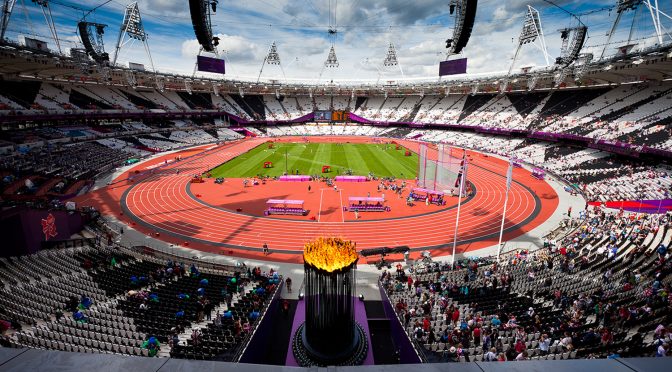With the coronavirus hitting hard on the sport industry, posing a deadly threat to much of it because unless the show goes on the revenue streams stop, the near existential question of what sport is and what it means to us, pops up in commentaries and tweets alongside reprimand of sport leaders hesitating to call off the Olympics or other sport events/tournaments for the sheer concern of money.
 We that make up the sport management research field, should perhaps take advantage of the situation to ask if such a fitting question actually resonate with the research that we have been producing and publishing for quite a while now. All of a sudden, what we see is that the sport industry and its products do not count among society’s basic needs.
We that make up the sport management research field, should perhaps take advantage of the situation to ask if such a fitting question actually resonate with the research that we have been producing and publishing for quite a while now. All of a sudden, what we see is that the sport industry and its products do not count among society’s basic needs.
In the midst of this situation, it so happens that my article “Sport is not industry: bringing sport back to sport management”, is out as e-print in European Sport Management Quarterly (ESMQ). The article is the outcome of years of pondering, and a growing sense of discomfort with (in my view) a lack of self-reflection within the research field of sport management.
Submitted before the pandemic crisis, the article was meant to provoke debate. I were, and still am, worried that it will not attract much attention. After all, it showcases that papers directed towards assessing our field, published in our major journals (ESMQ, Sport Management Review, and Journal of Sport Management) over the past decade, are few and far between: 14 out of 1077 articles.
Moreover, these 14 articles hardly cite each other, and their average citation across the journals is all but impressive. For sure, our outlets are not brimming with self-reflection and self-evaluation. If our main journals don’t debate the health of the field, where is this debate taking place?
Some may think the paper is too harsh on the state of the art of sport management, but with the corona virus putting sport on hold, perhaps our minds are open to self-reflection now. “There is a crack. A crack in everything. That’s how the light gets in”, sings the late Leonard Cohen. There are many reasons to love sport, but it is not because it is “a perfect offering”, to cite Cohen again.
Sport had plenty of cracks already, its dark sides, but it also has this ability to push the problems aside once the spectacle is on, and so we may ask if the light gets in. Sport-washing is practiced by many, not merely autocratic states like Russia, China and Qatar, but also sport’s own powerful actors such as IOC, FIFA and commercial actors that care more for their image (brand) and return on investment than sport’s integrity and its impact on global warming and the well-being of athletes.
The corona virus pandemic is different. It puts sport-washing on hold, too. Which hurts. Observe how the tormented IOC is so disinclined to postpone the Tokyo games now that it longs for another spectacular event to sport-wash its lacerated image. How the committee yearns to turn down the light, pause the criticism, and prove that the Olympics is the incontestable spectacle of the globe (as expected, its suspension was announced before this blog was published).
The question in the paper is whether our research, bluntly put, is sport-washing. Are we more obsessed with the commercial and political effects of sport than sport’s special quality and the study of how managing sport organizations impacts sport and the sporting human? Is the paucity of debate about our field, in our field, a symptom that we have surrendered to the ideology of managerialism and the industry practices it promotes in sport? Is our field “sport industry management”, not sport management?
Personally, I think neutral and unbiased research and education is imaginary. I don’t think it is possible to take a step back and claim that we as community have no impact on sport and the way it is managed and developed. And, I don’t think we should shun taking moral responsibility for our research and teaching and its impact on sport. To me, this means we need to debate in which direction(s) our field influences the social activity of sport, and whether this direction can be sustained and defended.
Now that sport and our sport-related habits are on hold, I hope our minds are more open to the reflection and self-reflection I invite in the article.
Bon appétit!
*************************************
 Professor Hallgeir Gammelsæter:
Professor Hallgeir Gammelsæter:
I fell in love with sport in the late 1960s, before sport was broadly broadcast. 50 years later, the hunger for watching sport has turned into a need for rationing it. Today, the access to publicized sport is limitless, but sport is also highly politicized and globalized. Sometimes that which is not showed is more intriguing than that which is recorded by the cameras.

